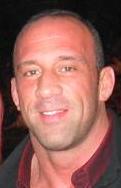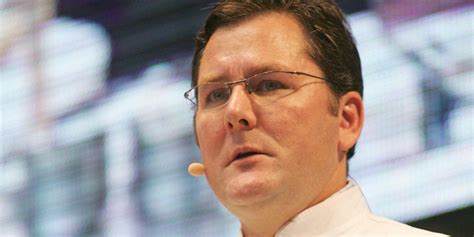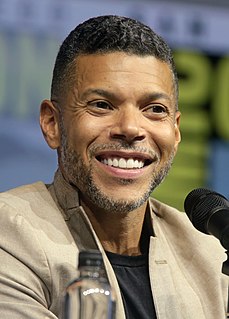A Quote by Joan Wallach Scott
The reason you go to university is to be taught, is to learn how to think more clearly, to call into question the ideas that you came with and think about whether or not they are the ideas you will always want to hold. A university education at its best is a time of confusion and questioning, a time to learn how to think clearly about the values and principles that guide one's life. Of course, it's also a time to acquire the skills needed for jobs in the "real world," but the part about becoming an adult with ideals and integrity is also important.
Quote Topics
About
Acquire
Adult
Also
Always
Becoming
Becoming An Adult
Best
Call
Came
Clearly
Confusion
Course
Education
Go
Guide
Hold
How
Ideals
Ideas
Important
Integrity
Jobs
Learn
Life
More
Needed
Part
Principles
Question
Questioning
Real
Real World
Reason
Skills
Taught
Think
Time
University
University Education
Values
Want
Whether
Will
World
Related Quotes
Also to get to see over the course of time how they change, and how Andy [Hertzfeld], regardless of how he's treated, still maintains a friendship with Steve [Jobs] over the course of time. Enough to want to show up and cheer him on. It says a lot about his character, and also that he cares about Steve. Yeah, I find it moving, and I find it a lovely thing on Andy's part.
There are students whose religious upbringing is going to make them feel uncomfortable in a class where certain kinds of secular ideas are presented. There are students whose ideas about history or sexuality are going to be similarly challenged to question, to affirm or to change those ideas. That doesn't mean they shouldn't be exposed to them; that's why they're at school. That's why they come to university: to be taught how to think well and critically about material that they're being presented with. But it's the teacher who is certified to teach them how to do that.
I often think people on opposite sides of the political spectrum may have similar values around care, around thriving or around independence, or around helping the disadvantaged, but they have different ideologies, different ideas and philosophies about how to go about that. It's important that we start to see each others humanness, while at the same time not losing sight of those differences, views and speeches and actions that do cause harm, that we're clearly taking a stand against.
I don't think there's a right or wrong things in your style. It's about how you clearly reflect who you are; how you more clearly tell the story. Who are you? How do you want to transmit that to the world, and how do you more clearly say that? Then I have a philosophy, FFPS: fit, fabric, proportion, and silhouette. Proportion's everything, really, knowing your body and understanding that. Those things have been really crucial for me. It's about being clear about the story you want to tell to the world about who you are - and maybe a little bit of FFPS.
There are reviews that are clearly wrong. Dr. Johnson's famous Life of Savage, he's clearly wrong about the value of Savage. But it's one of the great works in English literature. You can learn more about the artistic expression and what the poet does and how to write about art from that than any number of guys who are terrible writers, who have no original ideas, but who say yes, "Hamlet" is a wonderful play. It's a meaningless statement.
I think there's a growing amount of confusion about what conservatism is. And it is time for us to understand that conservatism is not built on personalities. Conservatism is not simply built on how angry you might seem from time to time. Conservatism is built on a set of principles and ideas that our nation desperately needs.
I sometimes ask myself how it came about that I was the one to develop the theory of relativity. The reason, I think, is that a normal adult never stops to think about problems of space and time. These are things which he has thought about as a child. Bu t my intellectual development was retarded,as a result of which I began to wonder about space and time only when I had already grown up.
I was a trial lawyer. At the same time, I was a teacher. I taught about the political and social content of film for American University. Then I left and became a teacher at the University of California at Santa Cruz. I taught about the political and social content of film, but I also taught a course in law for undergraduates.
The thing about education - and why I'm so passionate about the position and status of the university - is that it's supposed to teach citizens how to think better, how to think critically, how to tell truth from falsehood, how to make a judgment about when they're being lied to and duped and when they're not, how to evaluate scientific teaching. Losing that training of citizens is an extremely dangerous road to go down.
Becoming a father made me a lot more sentimental than I ever was before. I never cried at movies before I became a parent. I feel music more intensely. I think of my political ideas as ideas about how I want to interact with other human beings as opposed to abstract theories about how the world should be.
I love silence. And one of the paradoxes about the way I live and also about my work is that definitely one of the reasons I went into music, and especially into composing is that I love setting up an environment where I can be by myself for long periods of time and have everything as quiet as possible, either to think about sound, or to think about ideas, or just to focus on things that are important to me.
To me, the newspaper business was a way to learn about life and how things worked in the real world and how people spoke. You learn all the skills - you learn to listen, you learn to take notes - everything you use later as a novelist was valuable training in the newspaper world. But I always wanted to write novels.






































